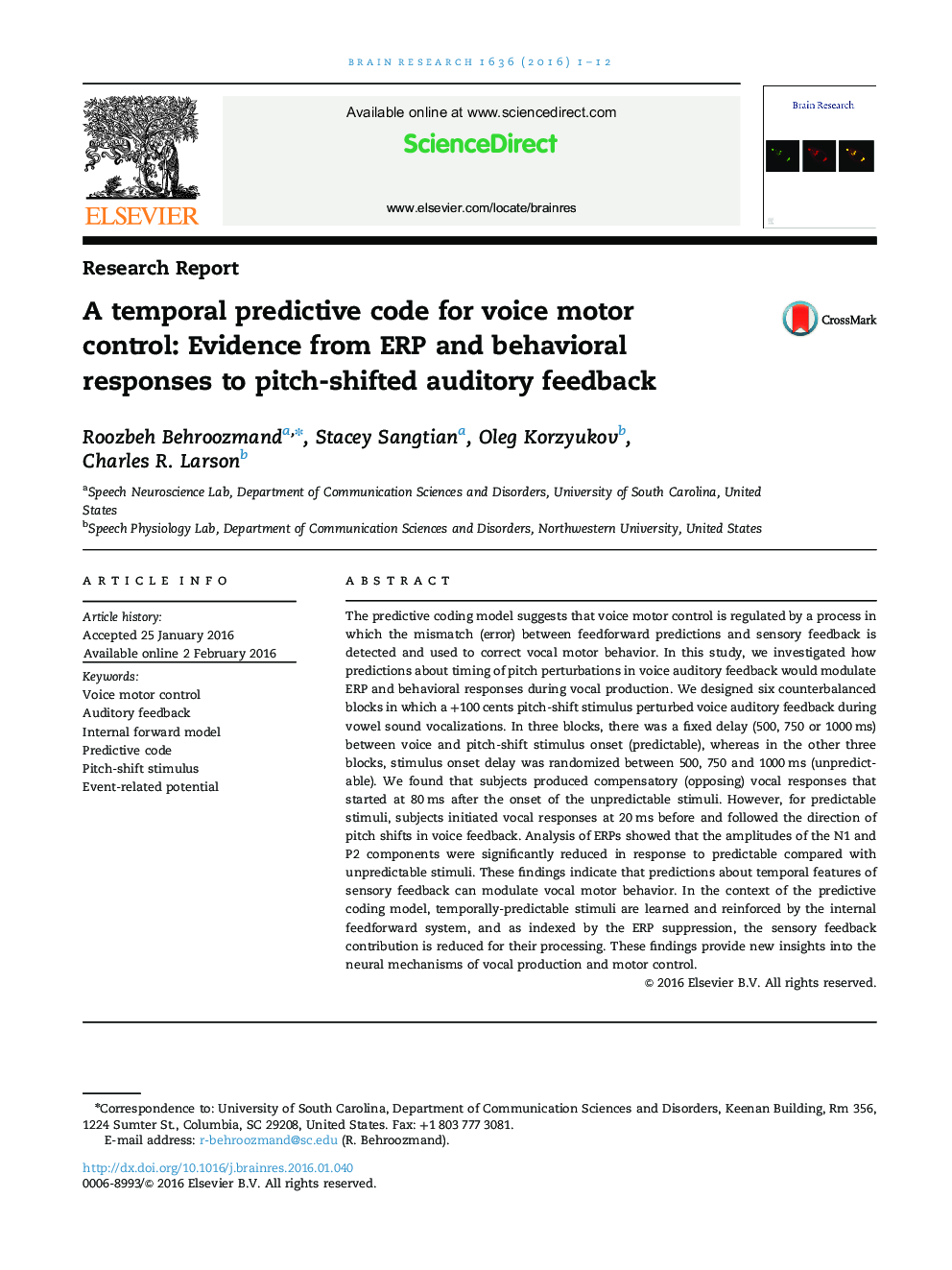| Article ID | Journal | Published Year | Pages | File Type |
|---|---|---|---|---|
| 6262551 | Brain Research | 2016 | 12 Pages |
â¢Humans use auditory feedback to control their voice during speaking.â¢Temporally-unpredictable changes in auditory feedback trigger opposing vocal responses.â¢Temporally-predictable changes in auditory feedback trigger following vocal responses.â¢The brain activity is suppressed for temporally-predictable changes in voice feedback.â¢Temporal predictability of changes in auditory feedback modulates voice motor control.
The predictive coding model suggests that voice motor control is regulated by a process in which the mismatch (error) between feedforward predictions and sensory feedback is detected and used to correct vocal motor behavior. In this study, we investigated how predictions about timing of pitch perturbations in voice auditory feedback would modulate ERP and behavioral responses during vocal production. We designed six counterbalanced blocks in which a +100Â cents pitch-shift stimulus perturbed voice auditory feedback during vowel sound vocalizations. In three blocks, there was a fixed delay (500, 750 or 1000Â ms) between voice and pitch-shift stimulus onset (predictable), whereas in the other three blocks, stimulus onset delay was randomized between 500, 750 and 1000Â ms (unpredictable). We found that subjects produced compensatory (opposing) vocal responses that started at 80Â ms after the onset of the unpredictable stimuli. However, for predictable stimuli, subjects initiated vocal responses at 20Â ms before and followed the direction of pitch shifts in voice feedback. Analysis of ERPs showed that the amplitudes of the N1 and P2 components were significantly reduced in response to predictable compared with unpredictable stimuli. These findings indicate that predictions about temporal features of sensory feedback can modulate vocal motor behavior. In the context of the predictive coding model, temporally-predictable stimuli are learned and reinforced by the internal feedforward system, and as indexed by the ERP suppression, the sensory feedback contribution is reduced for their processing. These findings provide new insights into the neural mechanisms of vocal production and motor control.
